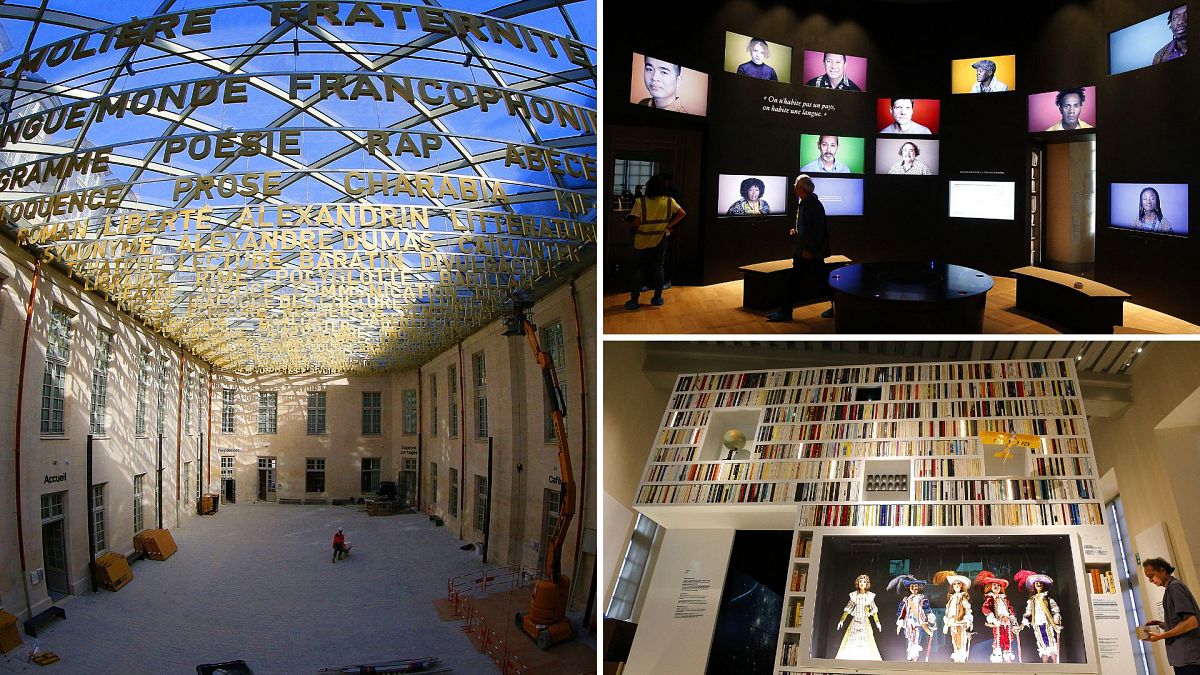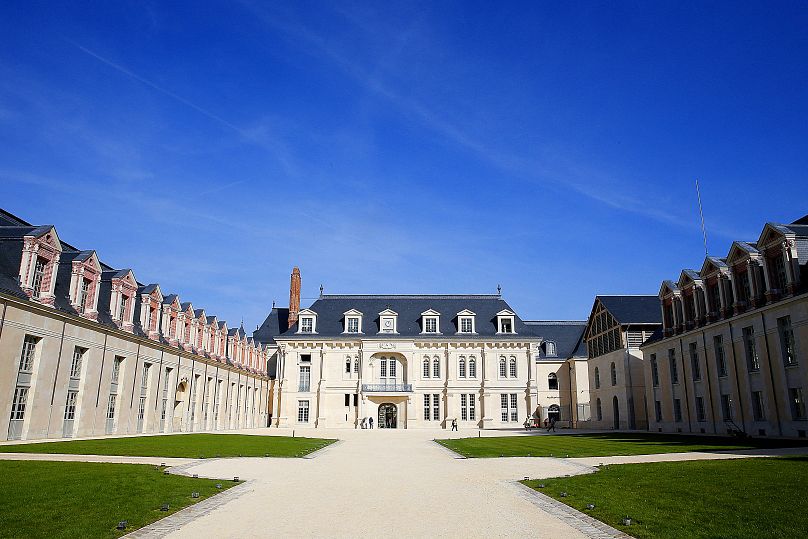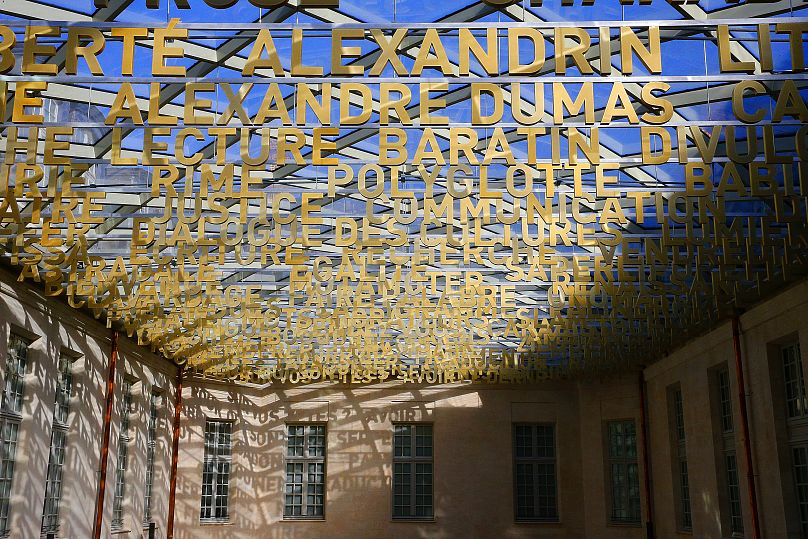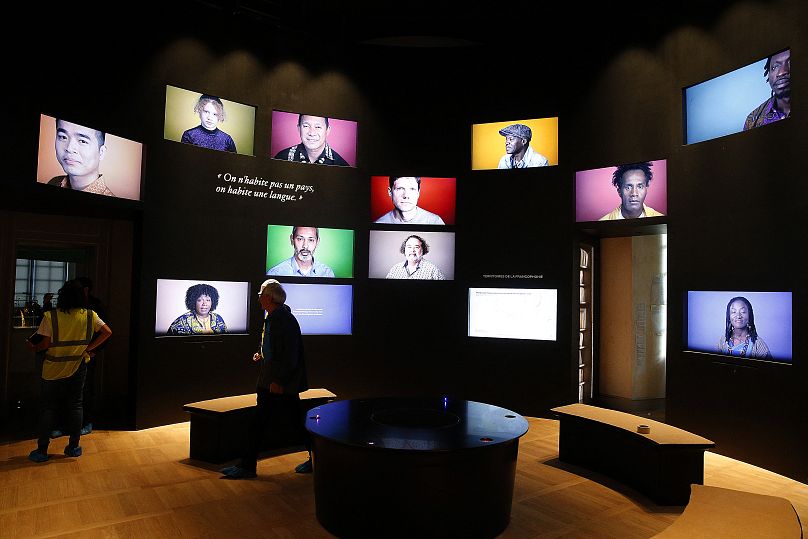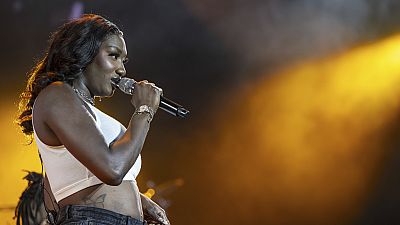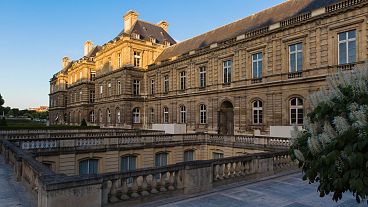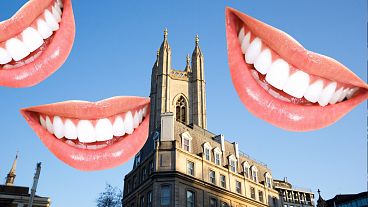Visitors will be able to view the famous Villers-Cotterêts ordinance, signed in 1539 by François I, as well as receive personalised reading recommendations from an artificial intelligence machine.
A new cultural space entirely dedicated to the origin and evolution of the French language is opening in France.
The International French Language Centre has been installed in the beautifully restored setting of the Villers-Cotterêts Castle in Aisne.
Having served as a workhouse, a military hospital, and a retirement home until 2014, the former hunting residence of King François I has undergone a remarkable transformation over the past three years.
"It's not just for those who speak French, it's also for those who are learning it or simply for those who love French culture in all its aspects, including the sound of the language," says Paul Rondin, the director of the International French Language Centre.
A major renovation project
In this town of 10,000 inhabitants, located 80 kilometres from Paris, then-candidate Emmanuel Macron discovered the state of disrepair of this Renaissance castle in 2017.
Once elected, he entrusted the Centre des Monuments Nationaux (CMN) with its transformation into a "castle of the Francophonie."
More than 210 million euros have been invested, making it President Macron's second-largest cultural project after Notre-Dame de Paris.
The initiative is deeply rooted in the history of Villers-Cotterêts, where François I signed the ordinance in 1539 that imposed the use of French in administrative documents and where Alexandre Dumas was born.
However, it also holds political significance in a region marked by deindustrialisation, unemployment, and far-right voting.
What to expect from the language centre
"Onomatopoeia," "weird," "spoiler," "nonsense": upon entering this castle, which had never been open to the public, visitors will discover a "lexical sky" in the Court of the Jeu de paume.
The suspended words have been chosen in collaboration with the local residents.
The King's staircase, with its magnificent coffered ceiling, an original interior decoration relic, along with the chapel and the Queen's staircase, leads to a permanent exhibition showcasing the spread of the French language worldwide, its standardisation processes, and the diversity of its uses.
Visitors can enter a cubic "magic library" containing thousands of books and receive personalised reading recommendations from an artificial intelligence machine.
Screens display actors performing linguistic acrobatics and offer interactive spelling tests.
"It's not a museum, and that means we have a responsibility here at the Cité internationale to show the language in the process of being transformed, which is also why there will be researchers and artists here," explains the centre's director, Paul Rondin.
He adds: "I hope that we will be able to evolve, to make a certain number of things evolve on the question of gender, for example. But that also applies to the acceptance of new words in the French language. I'll say it again: we're not defending language, we're welcoming it."
Exhibitions, performances, artist and researcher residencies are set to bring the place to life.
A "very ambitious" goal of 200,000 visitors per year has been set, with assurances from Marie Lavandier, the director of 'National monuments centre', that everything is being done to ensure local residents can access the centre without cost barriers.
